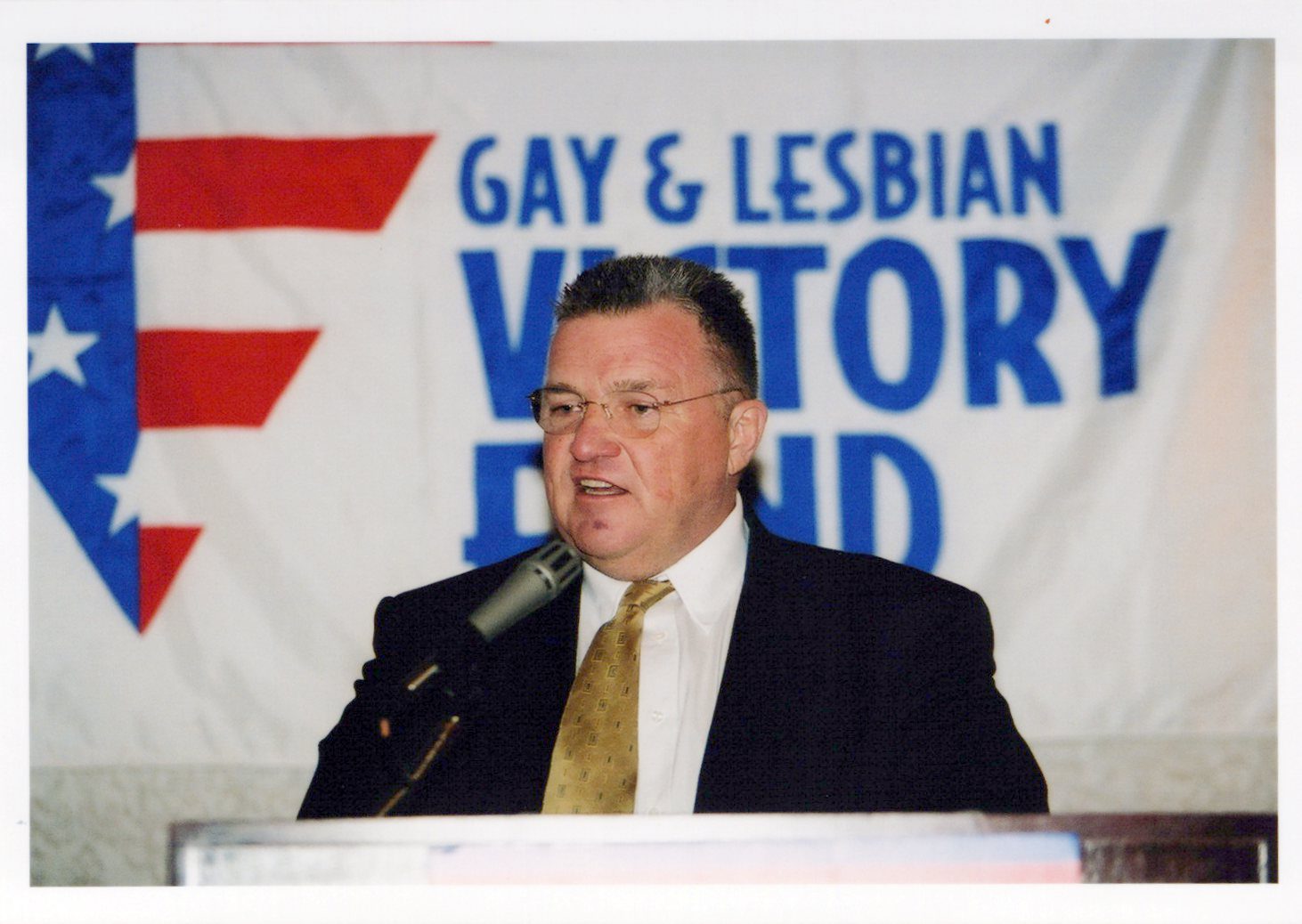
David Mixner loved the promise of our country and he pushed those in power to do what is morally right. Thanks in large part to my friend David’s political prowess and strategic focus I became our nation’s first open LGBTQ+ presidential appointee to win confirmation by the U.S. Senate.
-Roberta Achtenberg, former Assistant Secretary of Housing and Urban Development (1993-1995)
David was a courageous, resilient and unyielding force for social change at a time when our community faced widespread discrimination and an HIV/AIDS crisis ignored by the political class in Washington, DC. In 1987, David joined one of the first HIV/AIDS protests outside the Reagan White House, where police wore latex gloves because of the stigma and misinformation around HIV/AIDS. He was arrested, along with 64 others, and made national headlines, when being an out person could lead to harassment, violence or worse. But David was undeterred.
A few years, and many protests later, David and a group of fellow activists came together to discuss solutions to the government’s unresponsiveness to our cause – including the HIV/AIDS crisis. They determined it was because LGBTQ+ people were not represented among those elected leaders – and that we needed to be in the halls of power to make true change. From that moment, he made transforming our government his life’s work.
In 1991, he joined other activists to launch a new organization, then known as the Gay & Lesbian Victory Fund, that exclusively supported LGBTQ+ candidates. David served with Lynn Greer as a founding board co-chair. With support for candidates underway, his vision of a government and democracy representative of its people expanded beyond elections – and moved to ensure we were represented in political parties and presidential administrations as well. He pushed the presidential campaign of Bill Clinton to be inclusive of gay people – and was asked to join the campaign’s National Executive Committee – the first time an out LGBTQ+ person held a public facing presidential campaign role. When President Clinton won, David launched Victory’s Political Appointments Program, pushing the administration to appoint LGBTQ+ people to key political positions. He also influenced President Clinton to end the federal government’s ban on security clearances for gay officials, paving the way for LGBTQ+ people to be included in every department and agency.
David took himself out of consideration for an appointment, but helped identify several qualified people who were ready to take the next step, including Roberta Achtenberg to be Assistant Secretary of the Department of Housing and Urban Development. Despite a confirmation hearing laced with homophobic diatribes – including North Carolina Senator Jesse Helms calling her “that damned lesbian” – she was confirmed by a vote of 51 to 34 in 1993. It was the first time an out LGBTQ+ person was confirmed for appointment by the U.S. Senate, and it became the model for Victory Institute moving forward.
The work of the Political Appointments Program continues to this day. In honor of David’s impact and legacy, Victory Institute has renamed it The David Mixner Political Appointments Program.
About the David Mixner Political Appointments Program
Victory Institute’s David Mixner Political Appointments Program – a coalition of more than 30 LGBTQ+ organizations – works to support presidential administrations in ensuring qualified LGBTQ+ people are included in the federal government across all agencies and levels.
LGBTQ+ Victory Institute leads the nonpartisan initiative which accepts résumés from LGBTQ+ leaders interested in working in a presidential administration. Victory Institute reviews the résumés and provides support to candidates to assist administrations with filling open full-time and part-time positions – including on boards and advisory committees.
Representation matters, and when LGBTQ+ people are included at decision-making tables, they can significantly influence the policies and direction of agencies, commissions, and the executive branch to make a positive change for LGBTQ+ people.